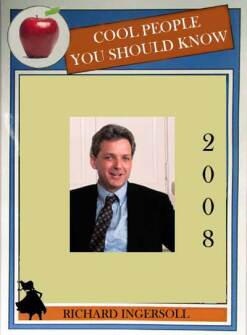
Richard Ingersoll is a sociologist who teaches at the University of Pennsylvania. He studies teacher quality, teacher retention, and how schools make use of teachers once they are on the job.
Last weekend, Ingersoll presented a talk out at Notre Dame called, “Misdiagnosing the Teacher Quality Problem,” which unpacked three common ideas about the roots of the teacher quality problem: 1) entry requirements are too restrictive; 2) we are plagued by teacher shortages, and 3) upgrading training and certification standards is the central issue in preparing highly qualified teachers. You can read the whole policy brief here, but I want to focus here on Ingersoll’s take on the first issue - the idea that the core of the teacher problem is that the entry barriers to teaching are too high - because it’s received a lot of attention this week. (See Kristof, Carey, and Glaeser.)
Ingersoll’s take is a comparative one - one that looks both across nations and across other professions within the United States. So how restrictive are other countries about who they allow to teach? Compared to a range of countries - from Asian nations like Korea, Japan, and Signapore to European countries - our barriers to entry are among the least restrictive out there. (See, for example, A Comparative Study of Teacher Qualifications in Six Nations.) And compared to a variety of other occupations and professions - teaching also has low entry barriers.
So the interesting question, Ingersoll argues, is why scrutiny on teacher qualifications has received so much attention, “Scrutiny of the value added by entry requirements is, of course, useful from the perspective of the public interest. But, such scrutiny also appears to be highly selective....Typically for most occupations, there is little or no empirical research done assessing the value added of practitioners having a particular
credential, license or certification.” Certainly there are people who would be good lawyers, good doctors, good professors, and good plumbers, but we rarely hear policymakers question licensing for these professions. Why, Ingersoll asks, is teaching so different?


